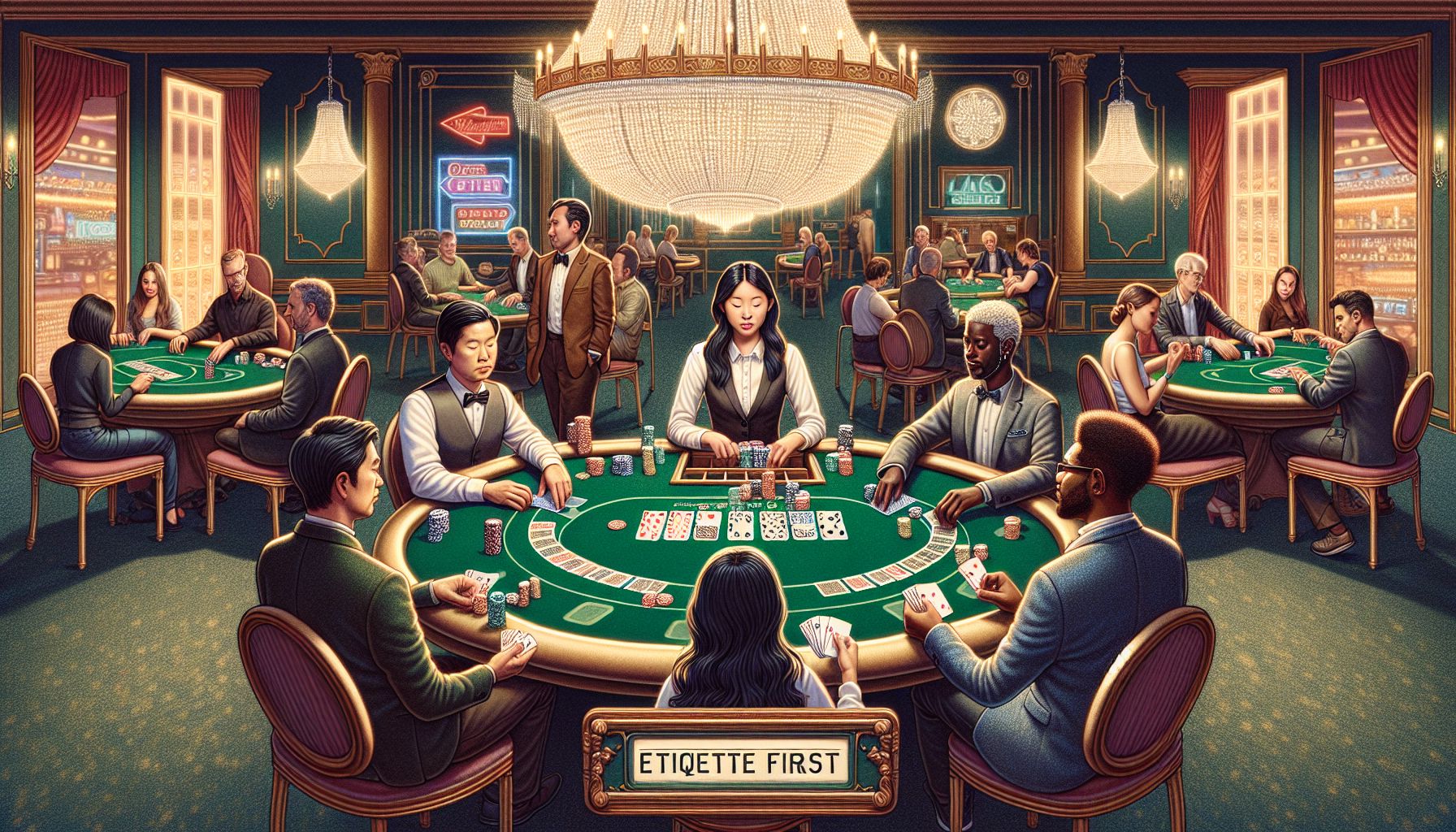The allure of the casino poker room is virtually irresistible – the immaculate green baize, the weighty palpability of the chips, the nuanced strategies, and, occasionally, the transcendent thrill of a royal flush or a full house. However, a true poker aficionado knows that the game is not merely about the cards – it is a sophisticated ballet of body language, Navigating the Poker Pit social dynamics, and unwritten rules. Fostering an understanding and respect for poker protocol is an essential aspect of becoming a seasoned player, enhancing both your performance and your enjoyment of the game. In this blog, I will share with you some indispensable tips on poker etiquette, influenced by my personal experiences and insights from other seasoned players.
Keeping Up with the Game’s Pace
Poker is a game that thrives on rhythm and pace. Each player’s action influences the subsequent steps, Navigating the Poker Pit creating a harmonious flow. Hence, maintaining this pace is a crucial part of poker etiquette.
To keep the game running smoothly, make sure you are aware of when it is your turn to act and what the current bet is. If you’re unsure, don’t hesitate to ask the dealer.
Additionally, when you’ve decided to fold, it’s best practice to do so promptly. Lengthy deliberations not only slow down the game but can also be construed as an attempt to gather information about other players’ hands. Observing the actions of the players who follow you is a big no-no when it comes to proper poker decorum.
Handling Capability
Proper chip handling is not just a flair for displaying player skills, Navigating the Poker Pit but it also forms part of the unwritten rules of poker room etiquette. Stacking your chips in a neat and orderly manner is important. Not only does this make it easier for you and other players to see how much you have, but it also prevents delays when it comes to betting.
One important rule is never to throw your chips into the pot. This practice termed as ‘splashing the pot’ can cause confusion when calculating bet amounts and distracts from the game’s smooth flow.
Exercising Courtesy
Emotional control and respect for both the dealer and other players are central to maintaining a friendly and enjoyable poker ambiance.
Refrain from criticizing other players’ tactics. Remember that poker is a strategic and often complex game, and each player has the right to develop and utilize their own unique strategies.
Moreover, it is critical to remain stoic during the game. Emotional outbreaks can disrupt the game’s concentration and potentially intimidate other players. Masking your emotions can benefit you strategically, as any visible reaction can be a clue to your opponents about your hand’s strength or weakness.
Verbalizing Decisions
In a poker room, every spoken word counts. Stating your intentions clearly, using common terms such as “bet”, “call”, “raise”, or “fold”, can help avoid confusion.
However, it is crucial not to talk about a hand still in play, especially if you’re not participating in it yourself. This can influence the game and is generally regarded as untoward behavior.
Tipping the Dealer
Just like any service industry staff, a poker dealer’s liveliness partly depends on tips. An unspoken yet universally acknowledged rule in most casinos is to tip the dealer after winning a pot, indicating gratitude for a game well managed.
Tipping is not obligatory, nor there are certain norms regarding tip amounts. It is more perceived as a goodwill gesture and general etiquette.
Conclusion
Mastering poker etiquette is undoubtedly as important as understanding the game’s rules and strategies. Respect for the process, the dealer, and fellow players is inherent in the poker world, and abiding by etiquette guidelines ensures a fair, enjoyable game for all participants.
Each poker room might have slight variations in their unspoken codes of conduct, making it essential for players to be observant and adaptable. Nonetheless, the underlying principle always remains – poker, at its heart, is a gentleman’s (or lady’s) game, requiring both gamesmanship and evident decorum.
Whether you are a novice seeking to enter your first live poker room or an experienced player eager to refine your poker etiquette, I hope this guide provides insightful assistance. May your poker future be characterized by friendly competition, intentional strategies, and perhaps, if fortune favors, numerous impressive victories.
So the next time you find yourself in a poker pit, remember: it’s not just about the cards – it’s about the manner in which you play them.
Baca Juga: Casino Conquest: Traversing the Thrilling Terrain of Poker Tournaments









